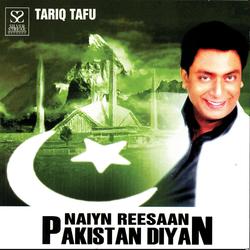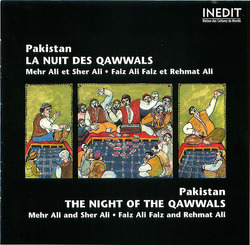Waqas.usman (Photographer). (2005). ApproachingNangaParbat [digital image]. Retrieved from Wikimedia commons: commons.wikimedia.org. Used under Creative Commons Attribution-Share Alike 3.0 Unported.

The Islamic Republic of Pakistan lies in southern Asia, bordered by India to the east and by Afghanistan and Iran to the west. It has a short frontier with the People’s Republic of China in the far north-east. The climate is dry and generally hot, with an annual average temperature of 27°C (80°F), except in the mountainous areas, which have very cold winters. Temperatures in Karachi are generally between 13°C (55°F) and 34°C (93°F), with negligible rainfall. The principal languages are Punjabi (the language usually spoken in 44.2% of households in 1998), Pushto/Pashtu (15.4%), Sindhi (14.1%) and Saraiki (10.5%). Urdu (7.6%) is the national language, and English is extensively used. The state religion is Islam, embracing more than 96% of the population in 1998, the remainder being mainly Hindus or Christians. The national flag (proportions 2 by 3) has a vertical white stripe at the hoist, while the remainder is dark green, with a white crescent moon and a five-pointed star in the centre. The capital is Islamabad.
Citations:
Country Flag (Pakistan), in Europa World online. London, Routledge. University of Tennessee, Knoxville. Retrieved 04 September 2018 from http://www.europaworld.com/entry/pk.FLAG
Location, Climate, Language, Religion, Flag, Capital (Pakistan), in Europa World online. London, Routledge. University of Tennessee, Knoxville. Retrieved 04 September 2018 from http://www.europaworld.com/entry/pk.is.2

Country Map (Pakistan), in Europa World online. London, Routledge. University of Tennessee, Knoxville. Retrieved 04 September 2018 from http://www.europaworld.com/entry/pk.MAP

(late 15th - early 16th c., Image: ca. 1998). Uch Monument Complex, Exterior. Retrieved from http://library.artstor.org/asset/AWMONUMENTSIG_10313273267

Current Church was ordered by Emperor Justinian; designed by Greek scientists Isidore of Miletus and Anthemius of Tralles; dome rebuilt by Isidore the Younger; church converted into a mosque By Ottoman Sultan Mehmed II. (Current church built 532 - 537 AD over a site where two earlier church were built; the original in 360 AD and the second in 415 AD; both burned to the ground, in 404 AD and 532 AD, respectively; converted into a Mosque circa 1453; Comnenus Mosaic was created 1122, Image: April, 2010). Interior, Upper Galleries Mosaics, Comnenus mosaic (Emperor Ioannes I Comnenos). Retrieved from http://library.artstor.org/asset/ASITESPHOTOIG_10313839714

Silver alloy necklace on silk rope, decorated with red and green +. [Personal gear Jewelry Necklace]. Retrieved from http://library.artstor.org/asset/AWSS35953_35953_38644991

(first half of the 20th century). Shawl. Retrieved from http://library.artstor.org/asset/AWSS35953_35953_32554572

Musical instrument and bow (hide over wood and decorated with +. [Tools Musical String]. Retrieved from http://library.artstor.org/asset/AWSS35953_35953_38684942

Mansur Aye. (1996). painting titled Karachi Beach, Karachi Beach. Retrieved from http://library.artstor.org/asset/HUNT_57025

More than one million digital images in the arts, architecture, humanities, and sciences. Please note: you must register for a free account in order to download images.

An online language learning resource that covers over 70 languages. Courses are accessible from a web browser or app.
--------------------------------------------------------------------------------------------------------------------------------------------

Pakistan is made up of four provinces, plus the capital territory of Islamabad: Balochistan, Khyber Pakhtunkhwa, The Punjab, and Sindh. Two disputed areas are included within their borders: Gilgit-Baltistan in the North and Azad Kashmir in the East.

Image source: The CIA World Factbook
K2 is the name of a mountain on the border of Pakistan and China in the Kashmir region. K2's elevation reaches 28,251 feet or 8,611 meters. This mountain belongs to the Karakoram Mountain Range. The name K2 comes from British surveyors who explored the mountain range, making note of the highest peaks as K1, K2, etc. The first successful ascent was completed by an Italian team led by Ardito Desio in 1954. K2 is considered one of the most difficult climbs in the world due to frequent storms and treacherous slopes.


1964-1997, Nusrat Feteh Ali Khan was a singer of Qawwali music and is often referred to as "Shahenshah-e-Qawwali" which means the King of Kings of Qawwali Music.

Steve McCurry. (2002). PAKISTAN. PAKISTAN. Peshawar. 2002.. Retrieved from http://library.artstor.org/asset/AMAGNUMIG_10311533046

Steve McCurry. (1980). PAKISTAN. Baluchistan. 1984. Shepard . ©Steve McCurry/Magnum. Retrieved from http://library.artstor.org/asset/AMAGNUMIG_10311532843

Abbas. (1988). PAKISTAN. Elections. 1988. PAKISTAN. Lahore. Prayers by Ravi river. 1988.. Retrieved from http://library.artstor.org/asset/AMAGNUMIG_10311566006

K.M., Chaudary, PM agoodman|BinaryUpdate|PhotoShopped|9/5/2018 7:28:29, and PM agoodman|File|Filed|9/5/2018 7:30:27. 2018. "Pakistan Fashion." Associated Press Images Collection, EBSCOhost (accessed September 6, 2018).

K.M., Chaudary, AM agoodman|BinaryUpdate|PhotoShopped|9/4/2018 11:29:26, and AM agoodman|File|Filed|9/4/2018 11:31:50. 2018. "Pakistan Cricket Chairman." Associated Press Images Collection, EBSCOhost (accessed September 6, 2018).

More than one million digital images in the arts, architecture, humanities, and sciences. Please note: you must register for a free account in order to download images.

Associated Press is one of the most important international press organizations. The collection includes online versions of wire copy, correspondence, memos, internal publications, from the Associated Press Corporate Archives, AP Images, and AP Archive.



There are two distinct styles of music in Pakistan: Qawwali and Ghazal. Qawwali music is the devotional music of the Chishti Sufis and is practiced throughout South Asia. This style of music was made popular by the Sabri Brothers. The Ghazal style is a poetic form of music consisting of couplets which share a rhyme and a refrain.
 Sufi Music of India and Pakistan
by
For the Sufis of India and Pakistan, the Qawwali songs are 'food for the soul', a means of attaining union with God, the ecstatic culmination of mystical experience. Regula Burckhardt Qureshi's study carefully describes and documents the performance of this music in the traditional Sufi assembly, the ritual of sama', first presenting the rich musical repertoire of Qawwali song, and then exploring everything else that is relevant to an understanding of the ritual: the profound belief system and its powerful articulation through mystical poetry in three languages (Farsi, Hindi, Urdu), the social and economic relationships between Sufi listeners and musicians, and, finally, all the specific rules governing the making of and listening to Qawwali in the Sufi assembly. All this leads up to a moment-by-moment account of actual Qawwali performances where the interplay between the musical sound and the diverse and often dramatic audience responses is described and analysed by the author.
Sufi Music of India and Pakistan
by
For the Sufis of India and Pakistan, the Qawwali songs are 'food for the soul', a means of attaining union with God, the ecstatic culmination of mystical experience. Regula Burckhardt Qureshi's study carefully describes and documents the performance of this music in the traditional Sufi assembly, the ritual of sama', first presenting the rich musical repertoire of Qawwali song, and then exploring everything else that is relevant to an understanding of the ritual: the profound belief system and its powerful articulation through mystical poetry in three languages (Farsi, Hindi, Urdu), the social and economic relationships between Sufi listeners and musicians, and, finally, all the specific rules governing the making of and listening to Qawwali in the Sufi assembly. All this leads up to a moment-by-moment account of actual Qawwali performances where the interplay between the musical sound and the diverse and often dramatic audience responses is described and analysed by the author.
Collective reference work compiled by the most prominent scholars in the field, touching on all aspects of Islam from the time of the Prophet to the present day.
Online Access - 3 simultaneous users
Provides political and economic information on countries and territories around the world.
Online Access - 4 simultaneous users
An international classified bibliography of publications in European languages on all aspects of Islam and the Muslim world.
Pakistan's government is a Federal Republic. The Head of State or the President is Arif Alvi (right). The Prime Minister or Head of Government is Imran Khan (left) and the Legislature consists of a Senate and National Assembly.


Almost everyone in Pakistan practices its official religion of Islam, but there are practicing Christians, Hindus, Buddhists, and Parsis as well. Important religious holidays are Ramadan and the Hajj.
Nazia Hassan - Queen of Disco Pop
Hassan recorded “Aap Jaisa Koi” for the film Qurbani, and the song became an instant hit. Her most famous songs, “Disco Deewane” and “Tere Qadmon Ko”, were inspired by disco beats and hip-hop. After the nation turned to become more Islamic, many of her music videos were banned or only showed her from the waist-up to hide her dancing feet. Hassan was the first Pakistani to make it on to US Billboard Charts.


Junoon - the U2 of Pakistan
Junoon, a sufi rock band, was popular in the 1990s. Members include Salman Ahmad (guitar and songwriter), Nusrat Hussain (keyboardist), Brain O’Connell (guitarist), and Ali Azmat (vocalist). They are Pakistan’s most successful with nineteen recorded albums and over 30 million records sold worldwide. Junoon combines western music styles of rock and metal with classical eastern poetry by touching on messages of peace and worldly issues.

